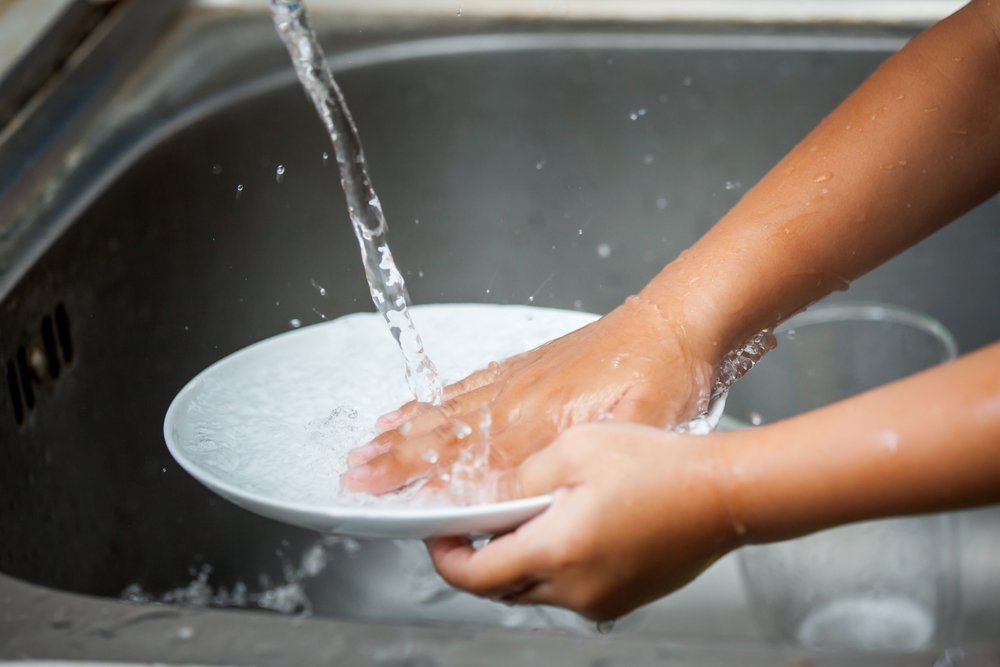
Not cleaning (or overcleaning!) dishes before loading them in the dishwasher
Don’t fall for ads which show dishwashers cleaning entire meals off of dinner plates. Doug Rogers, past president of Mr. Appliance, says food particles remaining on plates can gum up the moving parts of the appliance and get stuck in the crevices. Rinsing can help prevent this and keep your machine running smoother for longer. That said, leaving some residue on dirty dishes is necessary in order for the detergent to work properly, says Shirley Hood, an appliance expert and sales representative with Abt Electronics.
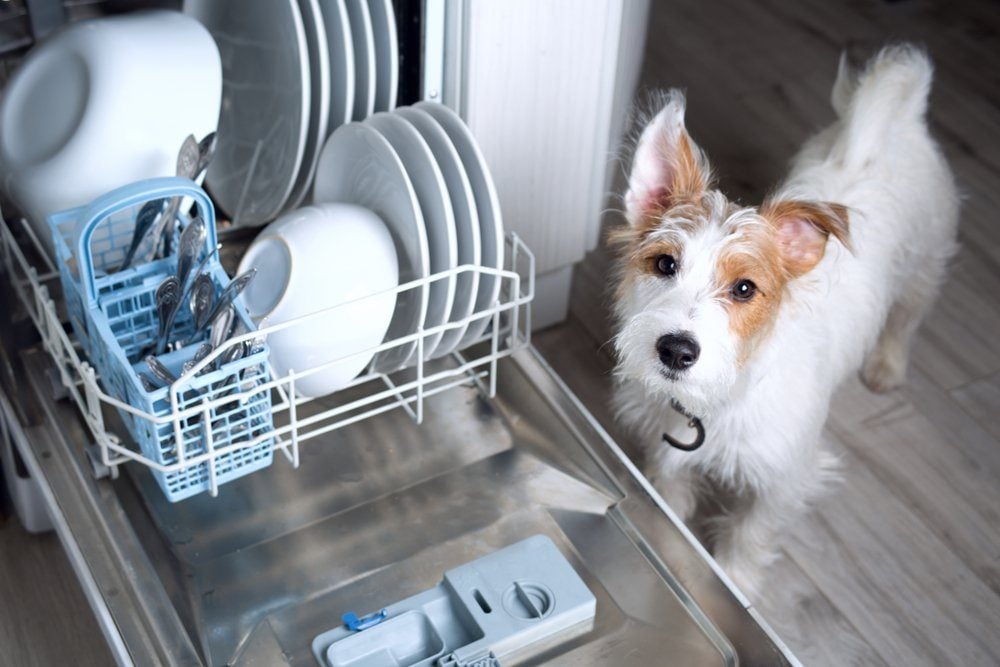
Abusing the door
Don’t let your pets or children sit on the door to the dishwasher. It may sound obvious, but it’s something Hood, with over 20 years experience, sees often, along with damage from people tripping over the doors of their dishwashers.
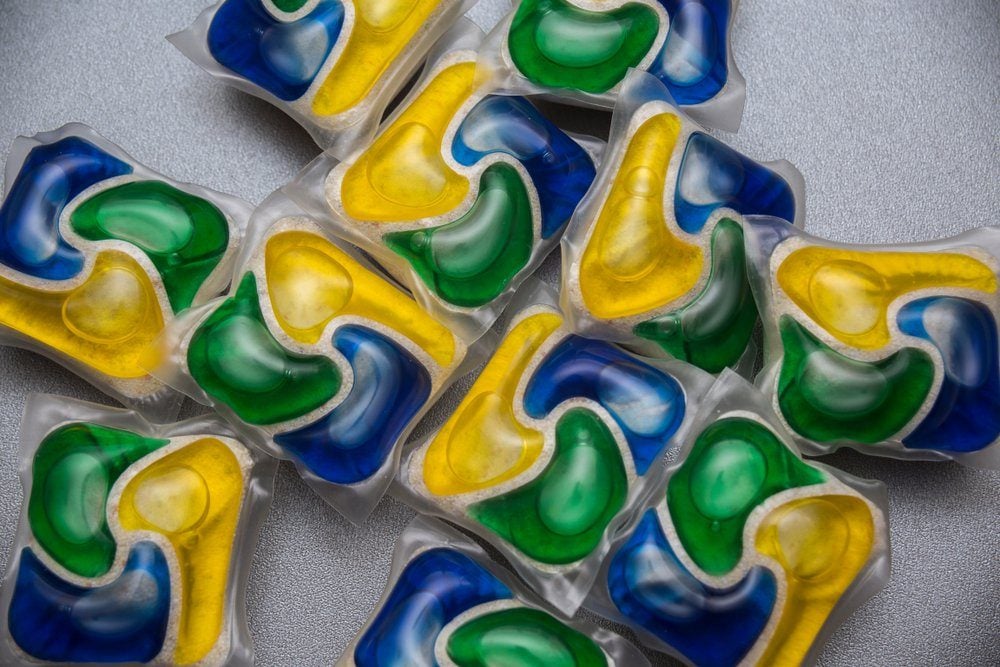
Using too much detergent
Hood says overloading on detergent can cause residue buildup in the wash and rain pumps.
This rule of thumb also applies to your washing machine. Here’s how to know if you’re using too much laundry detergent.
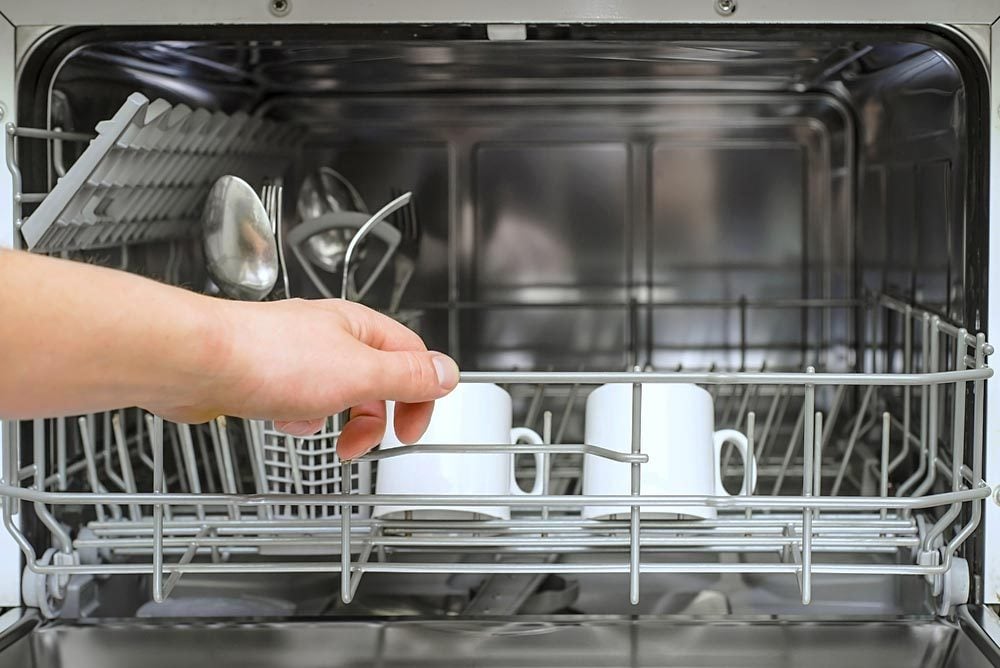
Running small loads
Always be sure your dishwasher is full, Rogers recommends. Not only will it save you on water and electricity, but it’ll mean fewer uses and a longer life for the appliance.
Check out 11 energy conservation tips you’ll wish you’d known sooner.
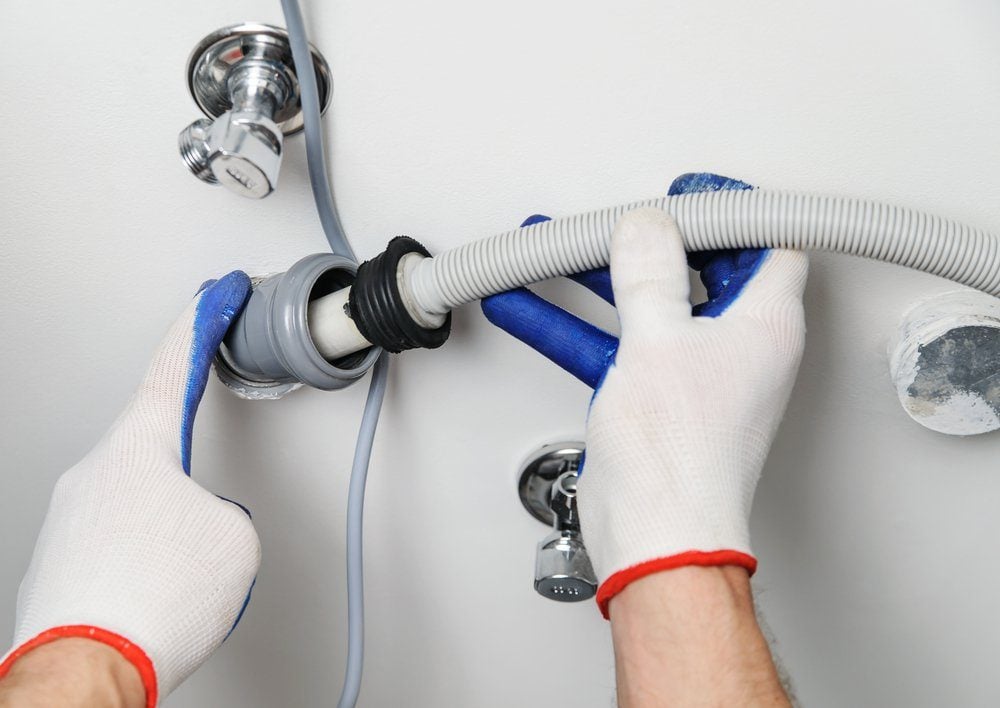
Forgetting to replace the hose
Change inlet/outlet hoses every five years to avoid calcium buildup, Mark McCleary, vice president of marketing for Beko and Bloomberg told Consumer Reports. You can change the hoses on your own or call a technician if you’re uncertain.
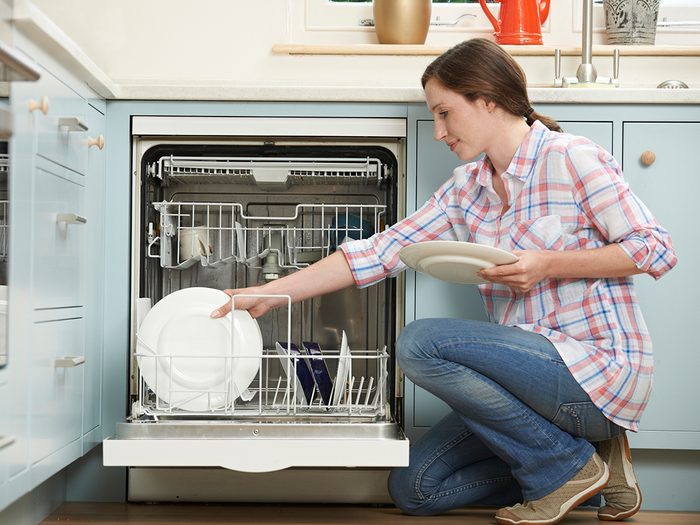
Using hard water
The quality of your water may not be on your side depending on where you live, but hard water builds up mineral layers on the inside of your dishwasher and its pipes, according to Smith. Luckily, she says, there’s a number of ways to soften water whether it’s detergent with water softeners, water filters, water softening units, or conditioners. “They have the same goal, namely, to improve the overall appliance efficiency, avoid damaged components, and extend the dishwasher lifecycle,” Smith says.
Find out the secret ingredient you should always add to your dishwasher.
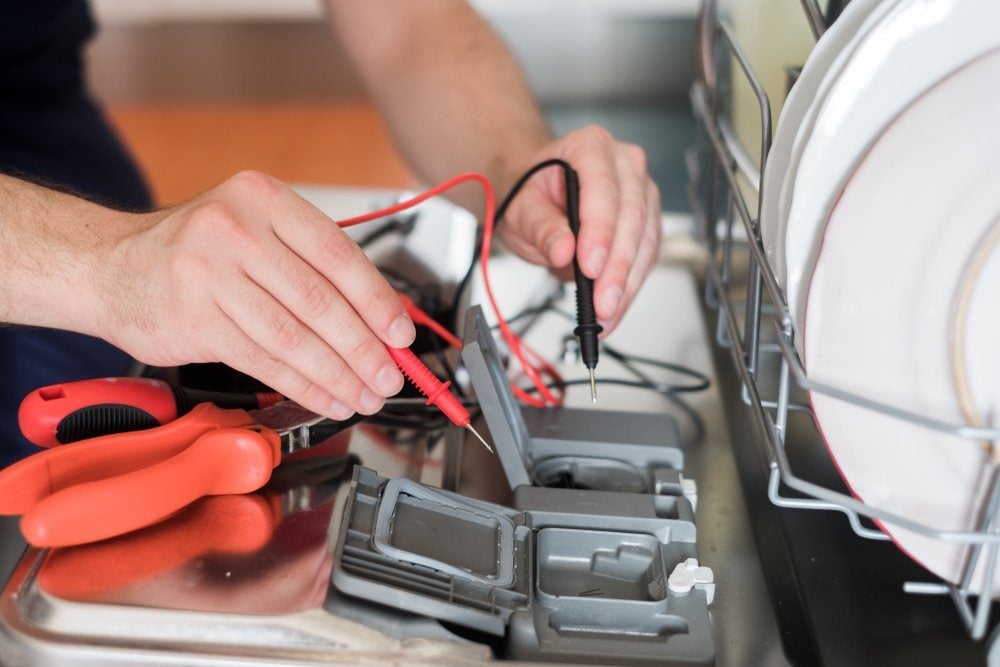
Avoiding regular inspections
If there’s something wrong with your dishwasher, don’t hesitate to call a professional, advises Stephany Smith, part of the handyman crew at My Handyman Services. “It’s important for an experienced repairman to check for loose, damaged valves, tub or door troubles that may further result in drips, leaks and even worse, in substantial water damages,” Smith says. “Professional help will keep the mechanics operate efficiently and save you from major repairs and replacement costs in the long run.”
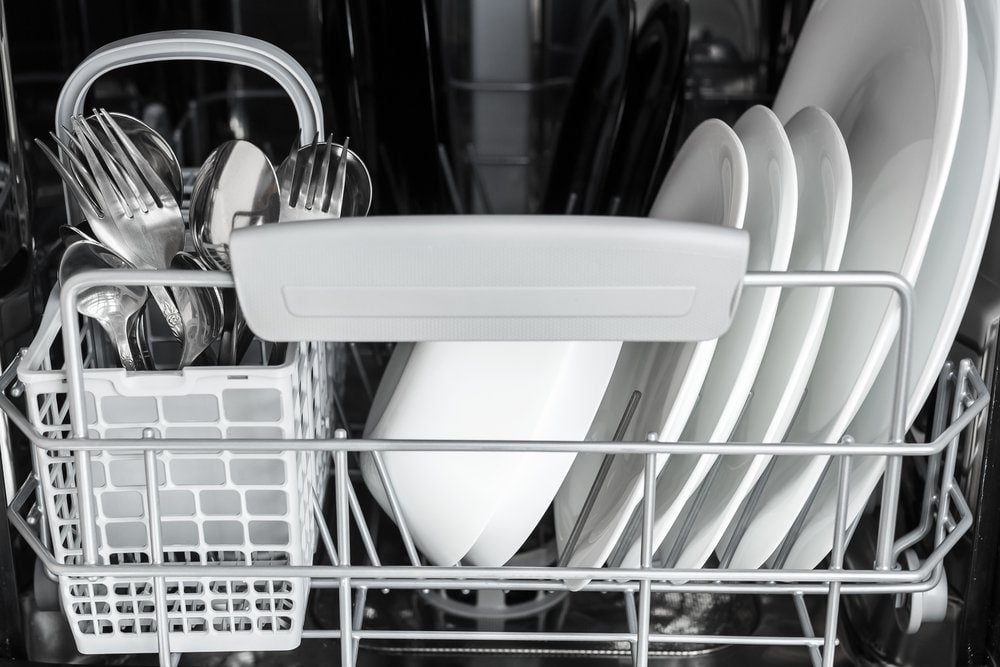
Putting sharp objects in the racks
Leave the knives in the silverware basket. Sharp edges will scrape off the plastic covering the metal of the racks, Rogers says. Without that plastic protection, the metal of the racks will begin to rust and break down the machine.
By the way, experts agree this is the right way to load utensils in the dishwasher.
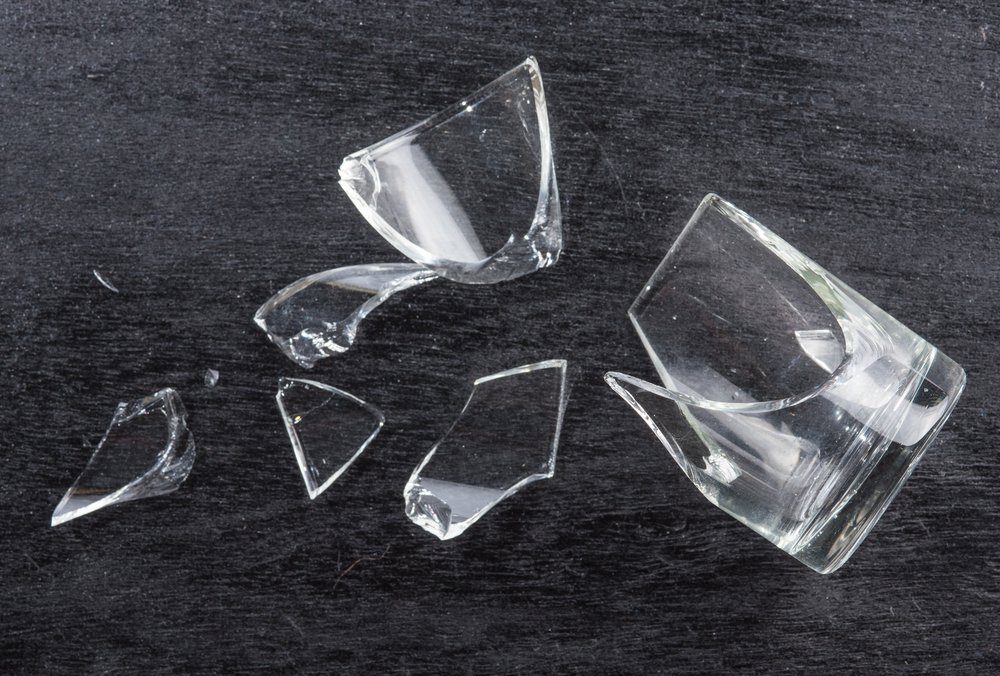
Leaving broken glass in the bottom
It happens: things break in the dishwasher. But Hood says people often don’t realize there’s glass in the appliance. “Depending on the size, glass shards can get past the dishwasher filter and make its way into the drain pump where it can cause real damage,” she says.
Discover the surprising ways you’re shortening the life of your refrigerator.
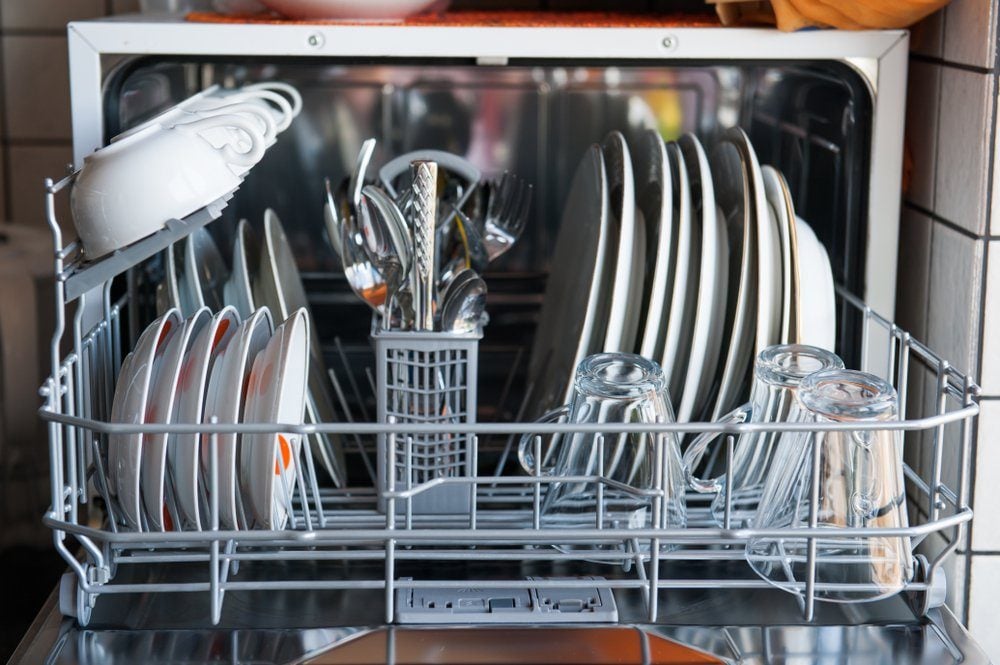
Overloading it
“If there are too many dishes loaded in the washer, the chances of overheating go up greatly,” says Mark Stoltzenburg, an HVAC/R-MAR program director/instructor at the Midwest Technical Institute. “Many of the components inside have a safety device to protect them from overheating, but by overloading the dishwasher those devices have a harder job, and component failure is more likely.”
Find out the microwave problems you shouldn’t ignore.
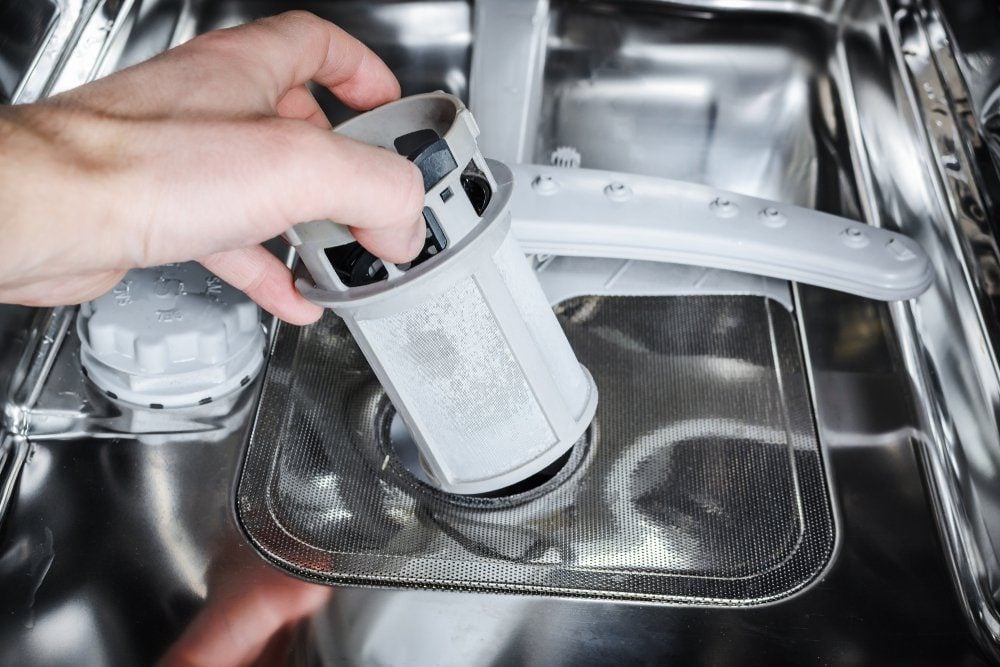
Forgetting to empty the food trap
Extra food particles that don’t come off dishes from an initial rinse gets collected in your dishwasher’s food trap. To avoid clogging, Family Handyman recommends lifting up the arm at the bottom of your dishwasher to empty the food trap about once a week.
Here’s advice on how to clean absolutely everything in your kitchen, according to The Marilyn Denis Show‘s Charles the Butler.
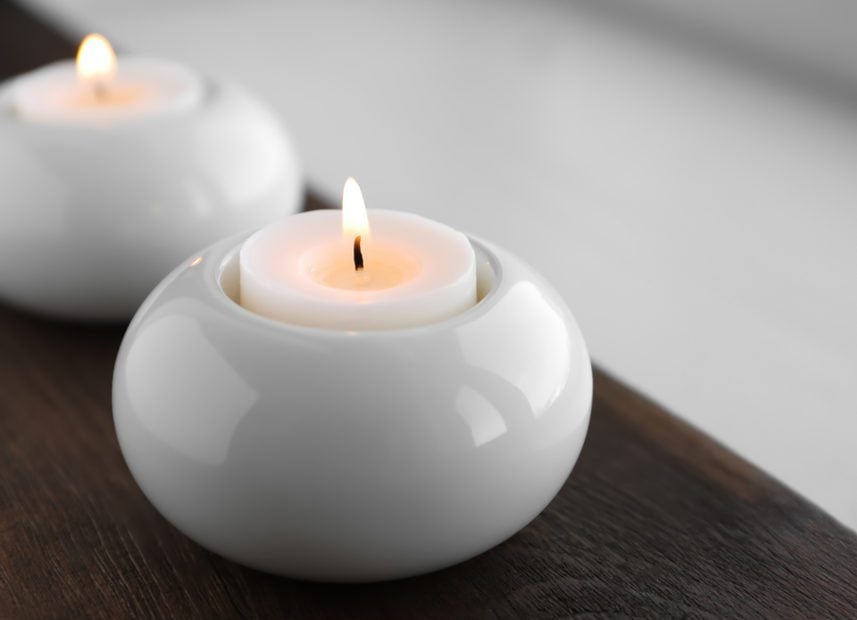
Running through candle holders without removing melted wax
Hood says people often throw candle holders and glass votives in the dishwasher without removing the melted wax first. The wax can cause residue buildup, which if not removed, can clog the wash and drain pump over time.
Find out how to get candle wax out of a jar.
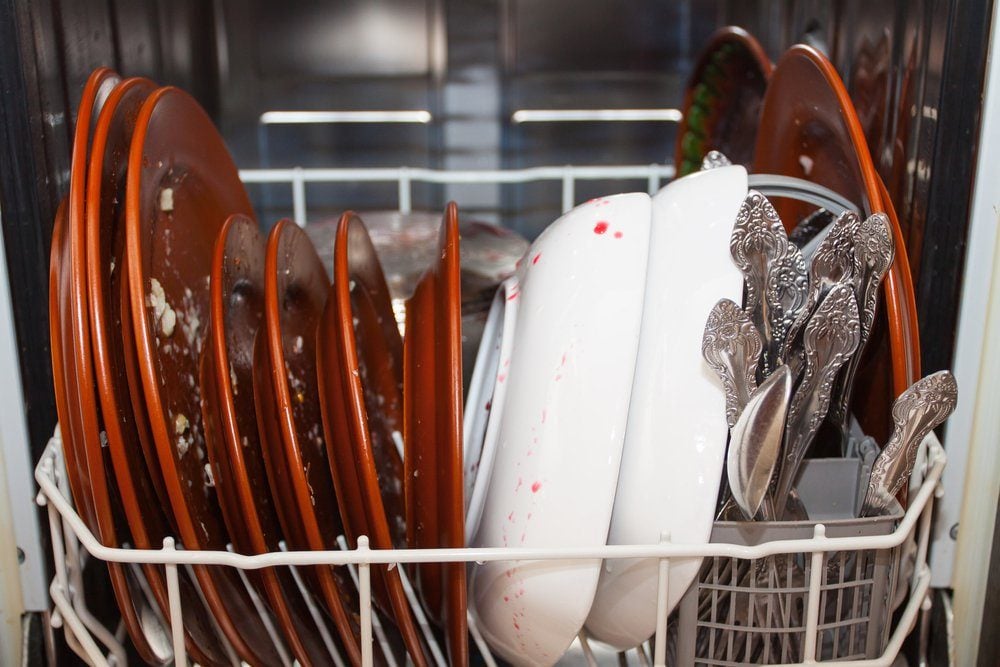
Using it to wash non-food messes
Items marred by dirt, sand, machine grease, and metal shavings should all be kept out of the dishwasher. “The system is robust, but if too much dirt gets into the dishwasher these fine particles might get into the rack tracks and inner workings of the system,” says Christopher Carlson, a senior analyst in dishwasher engineering and technology for Whirlpool Corporation. “Best to rinse off those picnic dishes from the beach before loading them.”
Don’t miss these brilliant ways to hack your kitchen appliances.
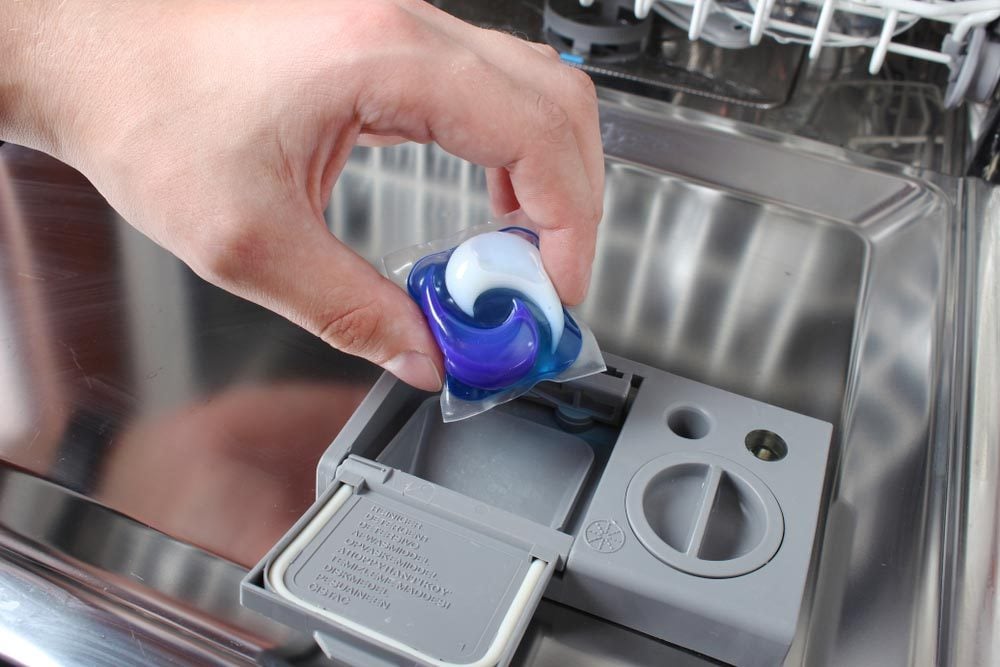
Not washing the dishwasher itself
You know to use dishwasher soap to clean the dishes, but are you cleaning the dishwasher itself? Rogers recommends running a dishwasher on an empty cycle every three to six months to clear calcium deposits. “This prevents the sprayer arm from becoming clogged, so you don’t have to worry about repairing it prematurely,” he says. Running once a month with white vinegar instead of detergent also keeps the machine running efficiently and eliminates any lingering odours.
Check out more dirty kitchen items that you don’t clean often enough.
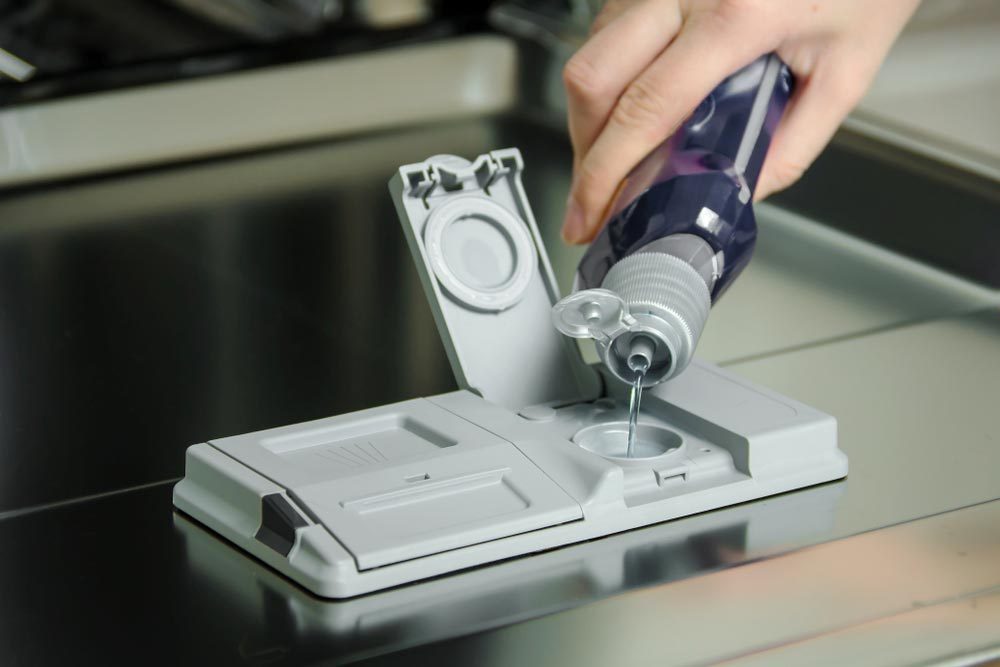
Using cheap dishwasher products
Saving a buck on dishwasher soaps, detergent, or degreasing products can cost you in the long run, Smith advises. “The best rule of thumb is to use only top-rated dishwasher products to clean the dishwasher interior,” she says. The best bet is to buy products labeled as “detergents.” The particles in cleaning powders can scratch the interior appliance surface, lead to clogs and cause leaks.
Here are six things plumbers never do in their own homes.
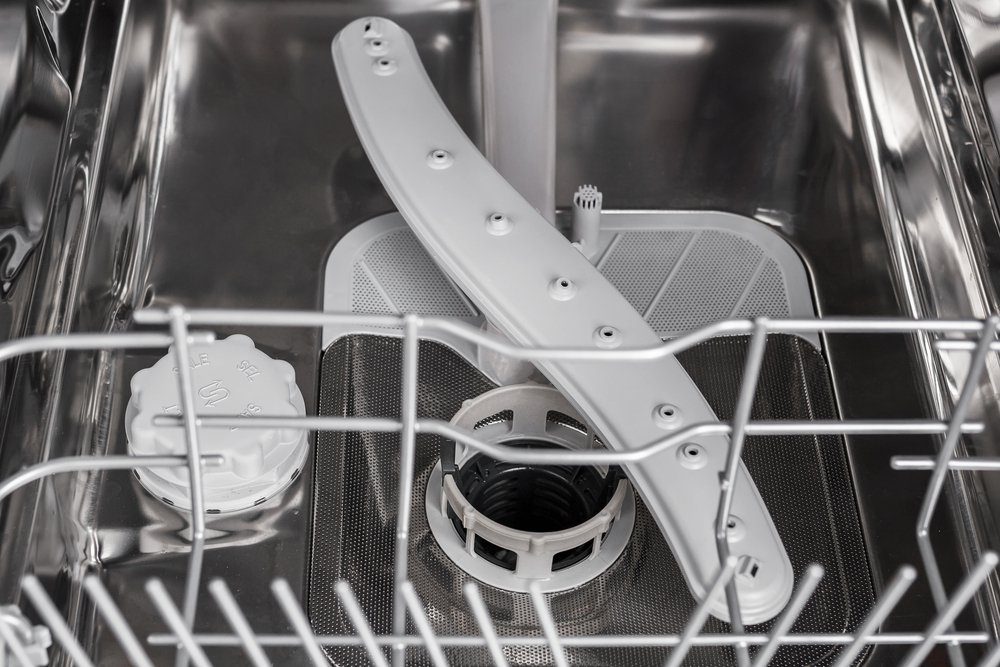
Forgetting to lock the filter at the bottom of the dishwasher
“This can cause large food items like nuts or even glass to get into the drain pump and cause damage to the line,” says Hood. “The mesh filters at the bottom of most dishwashers is for protection of the wash pump. If you don’t place the filter back into the lock position after removing it for cleaning, you are giving it the chance to move around during the wash cycle, allowing room for food particles and even glass to get into the drain pump which over time can clog or damage the line.”
Find out the renovation mistakes that are sending your home’s resale value into a tailspin.
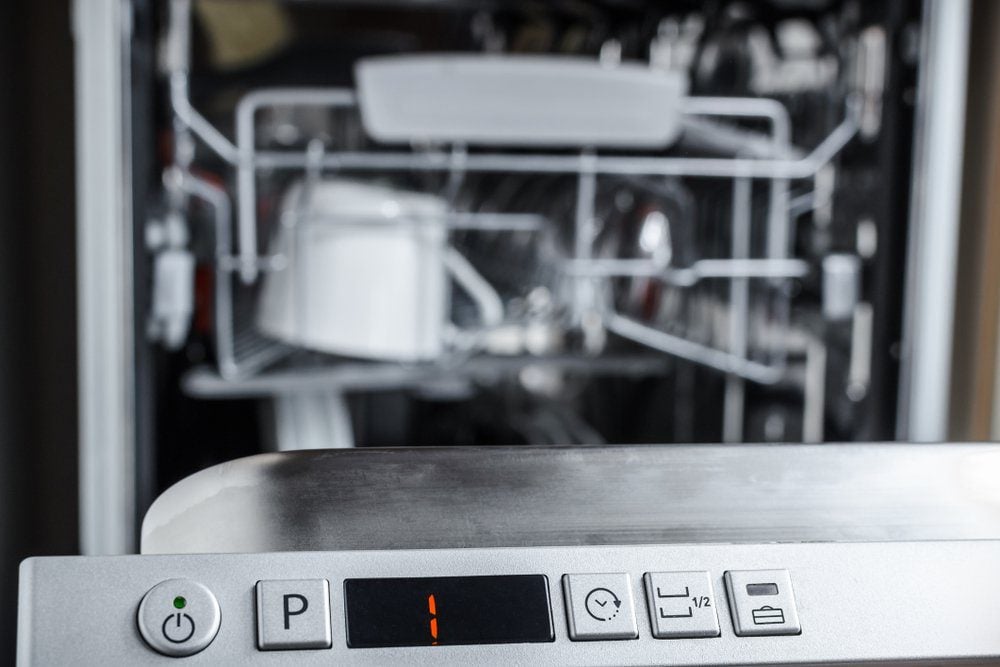
Running the wrong cycle type
“It could be tempting to use a lighter, faster and economical program to save water and energy,” Smith says. “However, you won’t only lose cleaning efficiency, but also risk to leave dirty ingredients and clogs on the mechanical parts.”
Find out 50 money saving tips you’ll wish you’d known sooner.
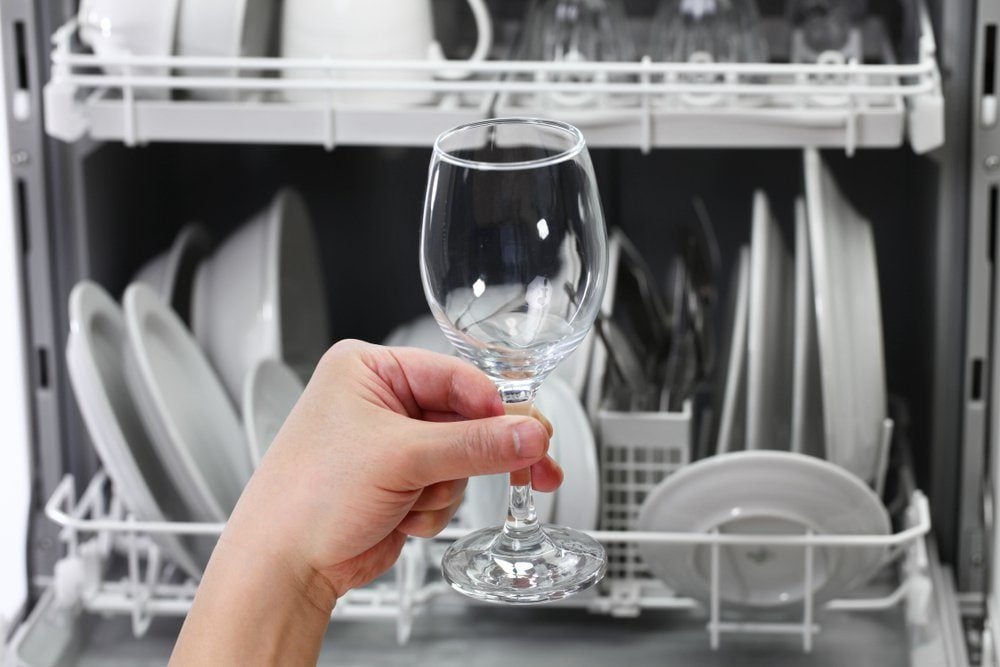
Loading it incorrectly
It may seem more efficient to fill your dishwasher quickly and sometimes stick items on shelves where they don’t belong, like glasses on the bottom rack. But this can actually result in broken glass or a blocked water sprayer, says Family Handyman. Not great for a machine you want to last!
Here’s what it could mean if you see white streaks on your dishes.
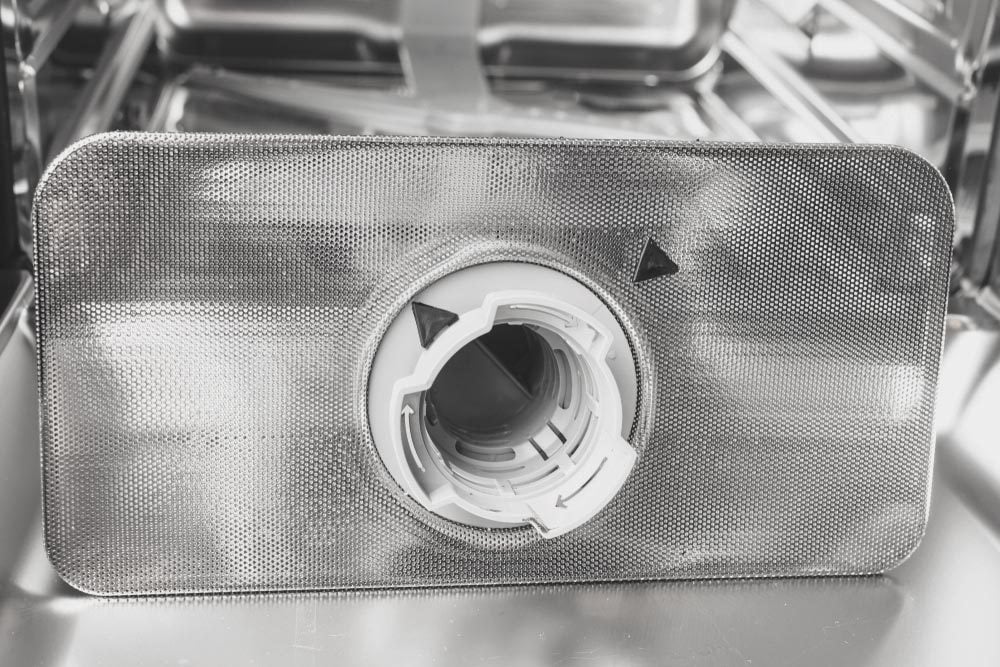
Neglecting to clean the dishwasher screen
Check to see if there’s a filtering screen under the bottom spray arm of your dishwasher. Rogers says this is present in some models and cleaning this regularly can prevent trapped food particles from turning into a sludge that blocks water flow.
Next, check out 13 cleaning hacks that take the hassle out of housekeeping.